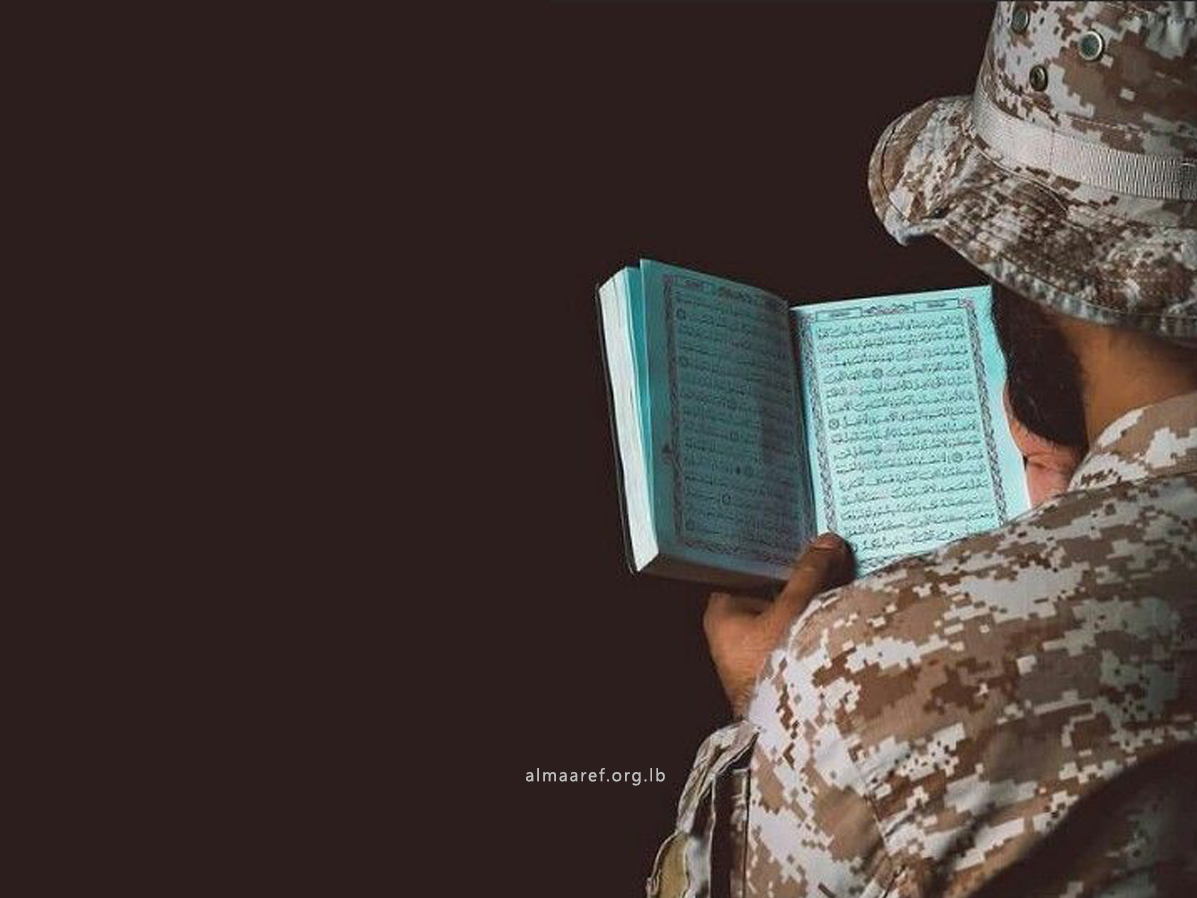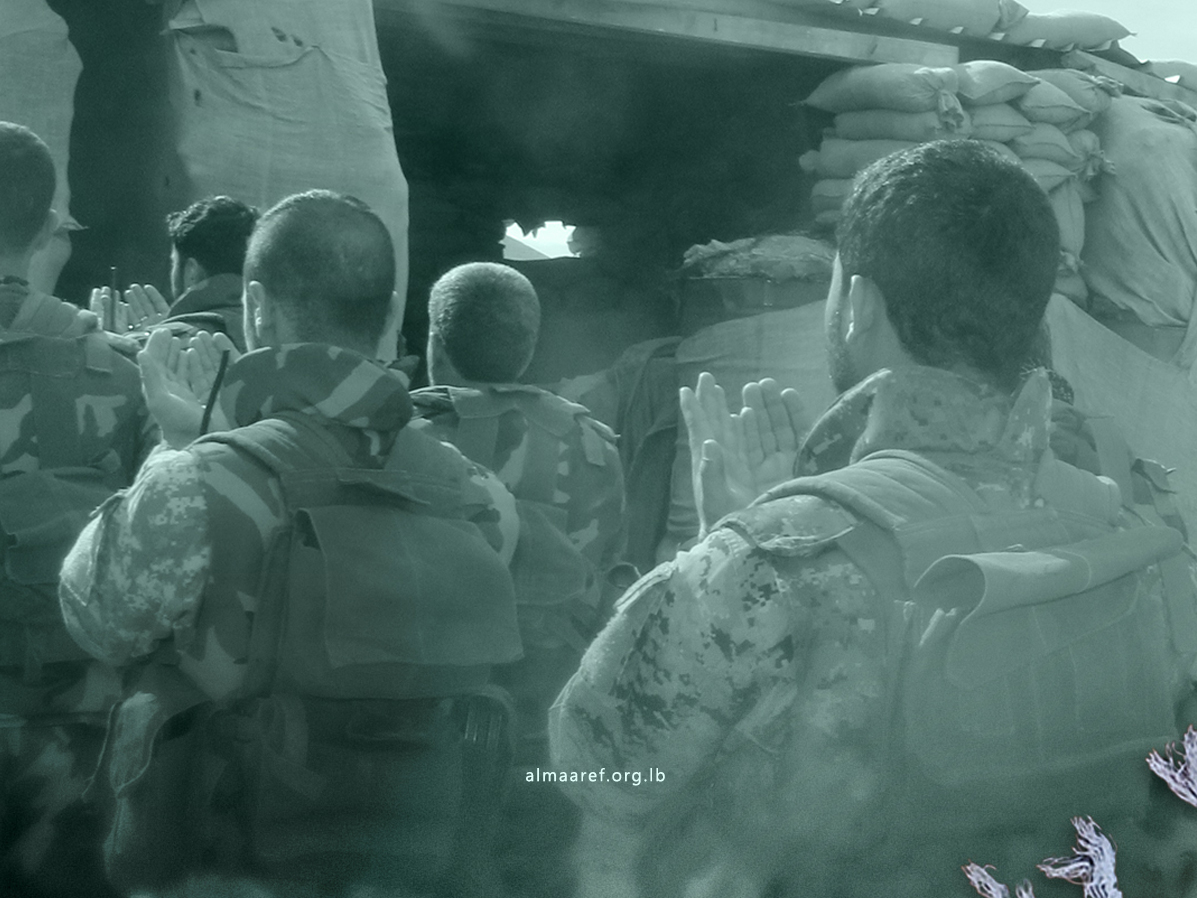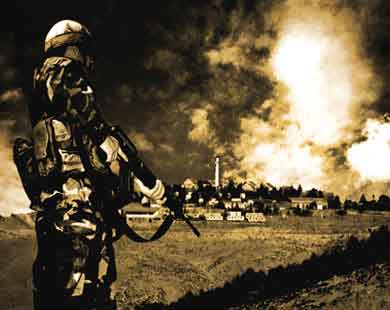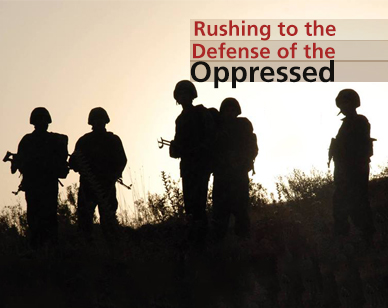The Fighters and Spending Night in Worship
In the context of enumerating the characteristics and qualities of his sincere followers, Al Imam Ali says, "Their lips are withered from supplication, their colors pale from night vigil."[1] Thus, among the qualities of these sincere followers of the Commander of the Faithful (a.s) is to enliven the nights and stand in the predawn hours, returning to the domain of divine mercy.
Today, the devoted fighter, following the example of his Imam and master Ali (a.s) should be among those who enliven the predawn hours, taking solace in remembrance and supplication, worship, and intimate conversations with God. In the predawn hours, his groans and weeping can be heard, and his pleading and humility before the divine greatness can be observed in the sanctuary of worship.
From this, we can understand a number of concepts mentioned in the Holy Quran, such as supplication, intimate conversations, and weeping out of fear of Allah Almighty. The Quran praises a group of believers who fall prostrate and weep when the verses of God are recited to them out of fear and awe. Allah Almighty says, "When the revelations of the Most Merciful are recited to them, they fall in prostration and weep."[2] In another verse, this description of the believers is mentioned: "Only those believe in Our verses who, when they are reminded of them, fall down in prostration and glorify the praises of their God, and they are not arrogant."[3]
In a third verse, a description is given of people who fall prostrate involuntarily upon hearing the Quranic verses: "And they fall upon their faces weeping, and it increases them in humility.” [4]
These verses clearly indicate that Allah’s sincere servants have their night prayers connected to their morning prostrations. Unfortunately, these acts of worship and habits have become neglected in our times, and few are those who connect their night prayers with their morning prostrations! Indeed, those who spend their predawn hours in standing and prostration are very few.
Let us look at the Commander of the Faithful (a.s) as he explains to us the meaning of the devoted fighter and provides us with a criterion for the characteristics of such a person: that he is always present in the battlefield with his weapon ready. The fighter is prepared at any moment for jihad and combat for the sake of Allah. This can be inferred from his statement, "They have stripped their swords of their sheaths."[5]
On the other hand, the Commander of the Faithful (a.s) draws our attention to the night of the fighter. The fighter is among those who weep and worship in the sanctuary of the Beloved, enjoying intimate conversations and seeking solitude with his Creator to mention his needs and wishes. This is what the Commander of the Faithful (a.s) wanted to teach us about the true blend between the military aspect of the fighter's personality and the radiant aspect of faith and love in his spirit and character.
This bright and beautiful idea about the attributes and qualities of these fighters is what moved the noble tongue of Al Imam to speak about their status with such lofty words: "May my father and mother be sacrificed for them!" This expresses his intense love for them, to the extent that he sacrifices his father, mother, and soul for them.
In history, there have been bright examples of these fighters, particularly during the sacred war waged by these great individuals in Iran. Their love for Allah flamed within them, transforming them into men devoted to Him, filling the battlefields with their significant spiritual presence.
Their yearning for Allah Almighty was so great that some of them made vows to Him, engaging in strenuous acts of worship, hoping that Allah would honor them with the sacred medal of martyrdom.
For instance, the devoted fighters would come, for forty consecutive Wednesday nights or Friday nights, from Tehran to the Jamkaran Mosque in Qom (which is more than 120 km away), with their only wish being that their prayers be answered so they could join the ranks of the martyrs.
In his speech about them, he says, "Their lips are withered from supplication."[6]
The frequent supplication and constant remembrance had withered their lips, and their colors had paled from the exhaustion of standing in prayer at night and enlivening the predawn hours with worship and intimate conversations with God.
Then, the Commander of the Faithful (a.s) after detailing these characteristics and traits of the devoted fighter, said, "Those are my brothers who have gone."[7] His expression of calling them his brothers is highly significant, as he suffered from the weakness, disobedience, lack of loyalty, and betrayal of his surroundings. Therefore, he compared them with the loyal companions of the Prophet (a.s) by saying, "I have seen the companions of Muhammad (pbuh) and I do not see anyone among you resembling them. They would wake up disheveled and dusty."[8]
He then says, "They spent their nights in prostration and standing, alternating between their foreheads and cheeks, and they would stand on embers, recalling their return to Allah."[9]
Al Imam (a.s) continues in his sermon, mentioning the characteristics and traits of the supporters and companions of the Prophet, saying, "It is as if between their eyes were the knees of goats from their prolonged prostration. When God was mentioned, their eyes overflowed with tears until their collars were soaked. They swayed like trees on a stormy day, out of fear of punishment and hope for reward."[10]
What is clearly observed from this passage is that Al Imam Ali (a.s) aims to highlight the spiritual and moral aspect of these fighters' personalities. Therefore, he did not mention their physical and combative traits. The reason for this is that he wanted to point to the true nature of the fighter's connection with Allah Almighty and the importance of this connection in forming the true personality of the divine fighter.
If it weren't for this true connection with Allah Almighty and their possession of these qualities of faith and worship, Muslims would not have witnessed those great victories in the early days of Islam.
Today, if we spend our nights in amusement and play, in idle talk and chatter, and sever our connection with Allah Almighty, we will not see any victories again.
Because of this unique, radiant aspect, the loving connection with God Almighty, expressions of yearning issued from the heart of the Commander of the Faithful (a.s) longing to see them. Hence, he said, "It is only right for us to thirst for them and bite our hands in separation from them!"[11]
All these qualities, as described by Imam Ali, peace be upon him, were evident and well-known among the young fighters during the war in Iran. The deserts and mountains still echo their weeping and the melodies of their groans, yearning to meet God Almighty. There is also hope that today's young fighters will preserve this great spiritual and faith-based heritage.
* The Pious Gives until Martyrdom, Al Maaref Islamic and Cultural Institution
[1] Nahjul Balagha sermon 121
[2] Surah Mariam verse 58
[3] Surah Al Sajdah verse 15
[4] Surah Al Isra’ verse 109
[5] Nahjul Balagha sermon 177
[6] Nahjul Balagha sermon 177
[7] Nahjul Balagha sermon 177
[8] Nahjul Balagha sermon 97
[9] Nahjul Balagha sermon 97
[10] Nahjul Balagha sermon 97
[11] Nahjul Balagha sermon 121



















